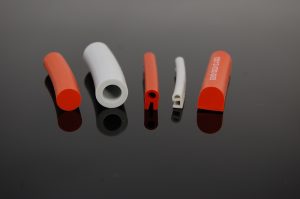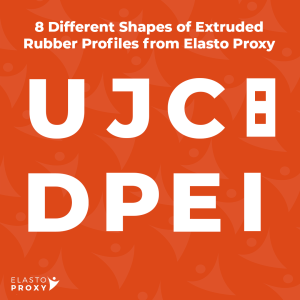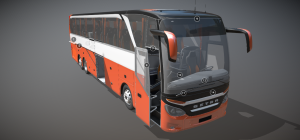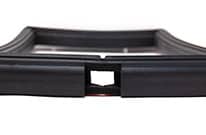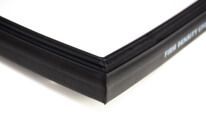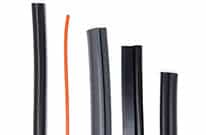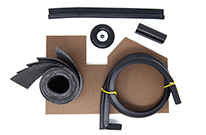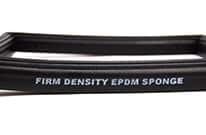There many enclosure gasket types. What’s the right choice for your application?
Elasto Proxy custom-fabricates seals, gaskets, and insulation for enclosures that house machinery and equipment. These industrial rubber products can provide environmental sealing, acoustic insulation, flame resistance, EMI shielding, chemical resistance, and other performance properties. As the following examples show, enclosure sealing and insulation varies by application.
Environmental Sealing and Acoustic Insulation
Gensets or generating sets supply off-grid electricity. They consist of a diesel or gasoline-powered engine and an electrical generator (such as an alternator) that converts mechanical power into electricity. To support repairs and maintenance, this equipment is housed in an enclosure with a door. The genset’s door gaskets provide environmental sealing, but the enclosure also needs acoustic insulation.
Sealing a genset door isn’t a job for just any rubber product. Static seals are fine when there’s no relative motion between mating surfaces, but dynamic seals are recommended when there’s motion or movement between sealing interfaces such as a door and door frame. Rubber gaskets also need to resist compression set – the permanent deformation of a material – when the enclosure door is closed.
Rubber gaskets provide some acoustic insulation, but an engine in an enclosed space is loud. Sound absorbers made of acoustic foams can be “tuned” to address these frequencies. Sound barriers and vibration dampers also support noise control. That’s important for complying with workplace limits on noise exposure and avoiding “noise pollution” in areas such as neighborhoods.
Flame and Fire Resistance
Manufacturers of electrical and electronic systems may need enclosure gaskets that are made of fireproof rubber. The UL 94 standard from Underwriters Laboratories (UL) defines 12 different flame ratings, so it’s important to determine which rating applies to your design. Engineers also need to consider whether the rubber gasket or the entire enclosure needs to meet this demanding standard.
Compounds that are described as “capable of passing UL 94” or “compliant with UL 94” probably don’t have a UL yellow card – proof that Underwriters Laboratories (UL) has tested and recognized the material. However, these less-expensive materials may still meet your requirements. Before selecting a compound then, engineers need a complete understanding of the application.
EMI Shielding
Electronic devices and equipment that are housed in an enclosure may require protection against electromagnetic interference (EMI) that can disrupt or damage circuits. The causes of EMI are numerous and can include both manmade and naturally-occurring sources. In industrial and commercial settings, the causes of EMI typically include brush motors, computer circuits, and lighting.
Gaskets made of particle-filled silicones provide both EMI shielding and environmental sealing. These metal-filled elastomers also provide electrical conductivity and resist a wide range of service temperatures. For applications that require resistance to fuels and industrial fluids, EMI gaskets made of particle-filled fluorosilicones are used.
Chemical Resistance
Enclosure gaskets are also needed by the pharmaceutical industry, which uses solid dosage processing equipment to manufacture finished doses of medication in tablet or capsule form. Often, these solid doses are coated to mask the medicine’s taste or odor, protect the drug in the stomach, and to control its release profile. In turn, these coatings may contain chemicals that can attack rubber.
Fluorosilicone enclosure gaskets can withstand these chemicals. These rubber gaskets also provide other performance properties such as excellent stability over a wide temperature range. Fluorosilicones gaskets resist compression set, too. Fluoroelastomers are more expensive than some other compounds but are cost-efficient to produce with the right cutting and bonding techniques.
Enclosure Gasket Types: Make the Right Choice
Elasto Proxy custom-fabricates enclosure seals, gaskets, and insulation with the right performance properties for your application. We use water jet cutting, offer a variety of bonding methods, and can help you with seal design and compound selection. If you need enclosure sealing and insulation solutions, please contact us.

